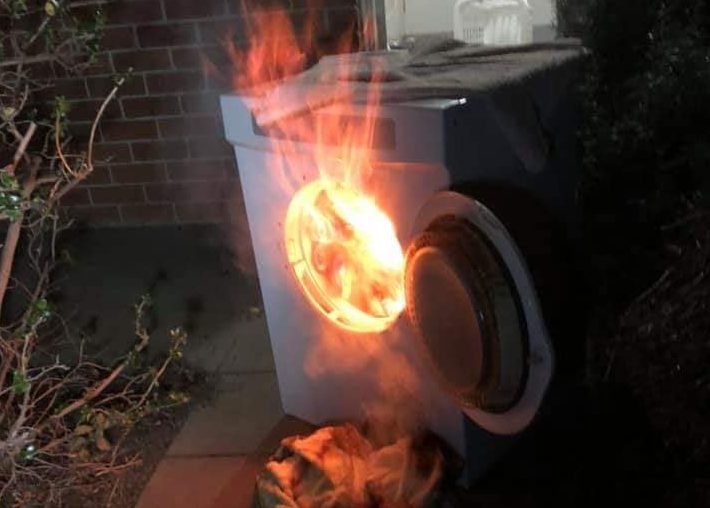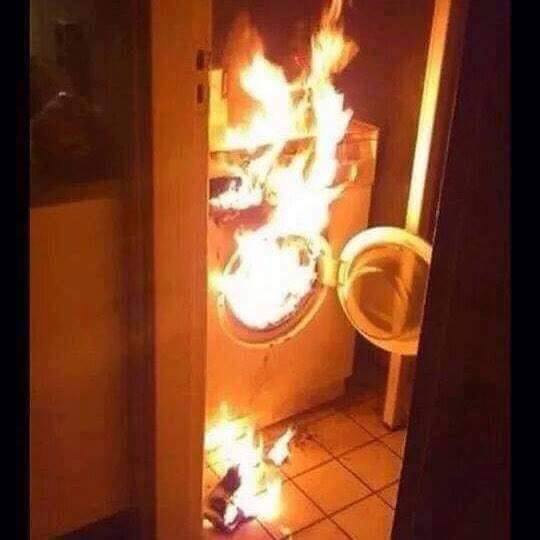Common Causes of Dryer Fires

Lint Built-Up and Clogged Ducts
The most common cause of dryer fires is a result of lint build-up in the dryer and exhaust duct. When dryers are not cleaned on a regular basis the lint build-up restricts airflow, and when the airflow is restricted, clothes take longer to dry. This is the first indication that there is a problem.
Clothes dryers have at least one operational thermostat, a high limit thermostat, and a thermal fuse. The purpose of the operational thermostat is to measure the temperature of the air flowing through the dryer. This is the temperature of the air that is drying the clothes. If the dryer vent has been pinched or has become clogged with lint, the air does not circulate through the dryer. The operational thermostat is not capable of measuring the temperature of the air flowing across the thermostat. With no airflow, the heat in the heater box will continue to rise until it activates the high limit thermostat.
Plastic and Flexible Dryer Ducts
According to the NFPA, all dryer manufacturers clearly state in their manuals to not use plastic or flexible dryer ducts between the vent and the clothes dryer.3 Though, many homes continue to use plastic and flexible ducts.
Flexible vents can twist, allowing lint to build up and catch on fire if it meets a sufficient amount of heat. Only flexible transition ducts that are listed by UL or another approved product safety testing agency should be used.
Dryer Ventilation and Overloading
Serious hazards occur when dryer vents do not exhaust directly to the outside. Faulty installations can vent dryer exhaust into the attic, crawl space, chimney, or interior walls, which can cause indoor air deterioration and mold buildup. If heavy clothes, such as blue jeans or towels, are taking a long time to dry or clothes feel hotter than usual at the end of the cycle, a clogged dryer vent exhaust is likely the problem.

Dryer Fire Prevention Tips
Keep the following tips in mind when using dryer machines to help prevent fires.
- Clothes that no longer feel dry to the touch after a normal dry cycle are a telltale sign that something’s wrong. Before doing the next load, check for a plugged vent and clean out any lint.
- No matter where your laundry room is located, place a smoke detector on the ceiling above the dryer. I have a 10-year rated smoke detector above my dryer, and if it sounds, all the smoke detectors in the house also sound.
- Never leave your dryer running when you leave the house. Many serious fires occur, and many pets die because of dryer fires.
- Never leave your dryer running when you go to bed. An average of over a dozen deaths and hundreds injured from dryer fires every year.
- Clean the entire duct system two or more times a year.
- Clean the lint filter after every load.
- Do not overload the dryer.

